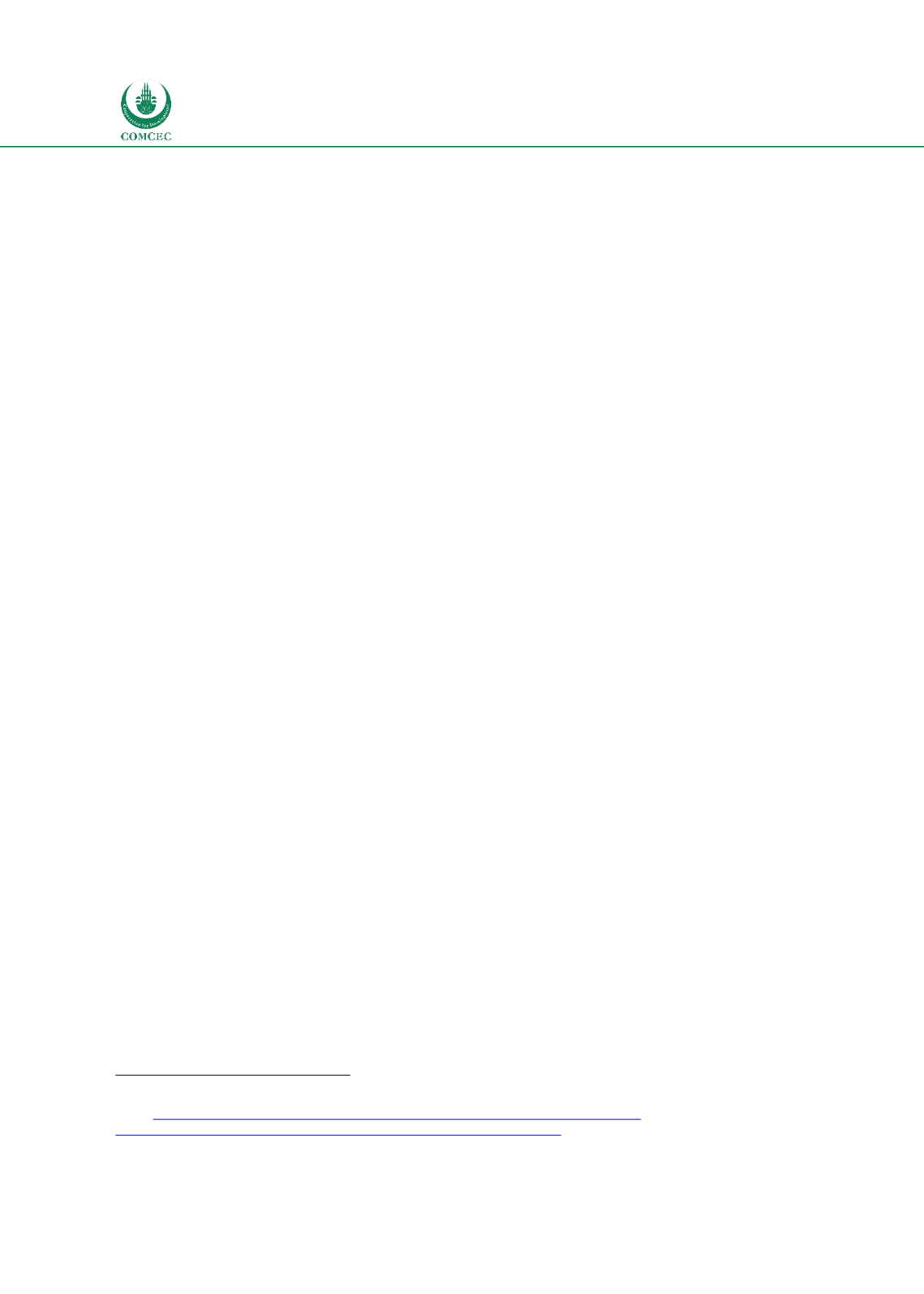

National and Global Islamic Financial Architecture:
Problems and Possible Solutions for the OIC Member Countries
162
Murabahah Facility to provide a source of liquidity for Islamic banks (CBUAE 2011).
4.12.5. Information Infrastructure and Transparency
Accounting and Auditing Framework/Transparency and Disclosure
The laws/regulations of the UAE do not require IFIs to use AAOIFI’s financial
accounting/auditing standards. Instead, the IFRS accounting and auditing standards are used
by IFIs. The UAE does not require Islamic financial institutions to adopt AAOIFI and IFSB
standards on transparency and disclosure. As such, the laws and regulations of the country
require disclosure of specific items that are relevant to IFIs such as information relevant to
Profit-Sharing Investment Accounts (PSIA) holders and Shariah governance. Islamic banks are
subject to the same reporting requirements as conventional banks. The regulator requires
financial institutions to be transparent and disclose adequate information as per the IFRS
standards. All banks are required to publish quarterly audited accounts and have their annual
audited accounts approved by the Central bank before they are published
(Khan and Walker,
2010, 585).
Articles 34 and 35 of Federal Law No. 4 of the Year 2000 require companies, whose securities
have been listed in the market, to promptly furnish it with any information which affects the
prices of the securities upon the same becoming available to them. Furthermore, the market's
board of directors are granted the right to publish such information in the local press and other
media it deems appropriate. Moreover, the aforementioned companies are required to publish,
when so requested, any explanatory information which relates to their circumstances and
activities and is such as to secure the integrity of transactions and the confidence of investors.
There are standards for sukuk issued by SCA to improve transparency and identify information
that will be disclosed in sukuk prospectuses (SCA 2014).
Rating Agencies
The Abu Dhabi Chamber of Commerce & Industry and Dubai Chamber of Commerce & Industry
provide credit ratings and business information reports of some companies.
39
However,
whereas there is no dedicated organization that provides credit ratings for securities and
sukuk issuance, international rating agencies such as Moody’s are used to issue ratings for
sukuk that are marketed globally. These mechanisms, however, are usually market driven (i.e.
the rating mechanism is not required by the regulator), as many bodies and investors will not
be willing to invest except if the rating for the instrument is provided by a well-established
credit rating agency. In UAE, there is no rating agency that provides Shariah rating of Islamic
banks and sukuk structures.
39
Se
e http://www.abudhabichamber.ae/English/Services/Pages/Credit-Rating-Services.aspxand
http://www.dubaichamber.com/en/services/business-protection/credit-rating















